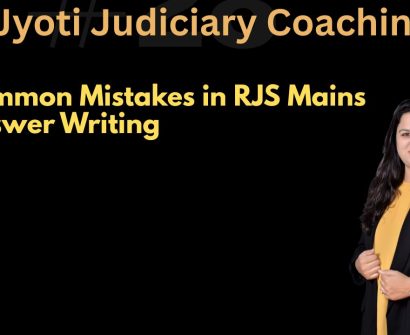
Defection: The act of an elected official switching their party or political affiliation is referred to as defection. A person can do this by defecting from their original political party, joining another one, or casting a vote in opposition to the party’s platform.
The 52nd Amendment Act of 1985 was used to enact the Anti-Defection Law, which went into effect in 1986. It amended the Indian Constitution by adding the Tenth Schedule.
The law has measures that bar elected officials from serving (including Members of Parliament and Members of Legislative Assemblies) if they transgress certain defection-related requirements:
a. Voluntarily Giving up Membership: If a legislator voluntarily gives up the membership of their party, they can be disqualified.
b. Abstaining from Voting: Abstaining from voting when the party whip has been issued can also lead to disqualification.
If you want to be a judicial officer and are looking for RJS coaching in Jaipur , here, at Jyoti Judiciary we provide comprehensive study material to make your preparation solidified and topnotch. From preliminary mock tests, to mains answer writing sessions every material required for clearing the exam is provided. We have separate legal current affairs classes, legal general knowledge, current affairs classes all in one time enrolment. Hurry up.
This article is written by Shivani Singh faculty at Jyoti Judiciary.









